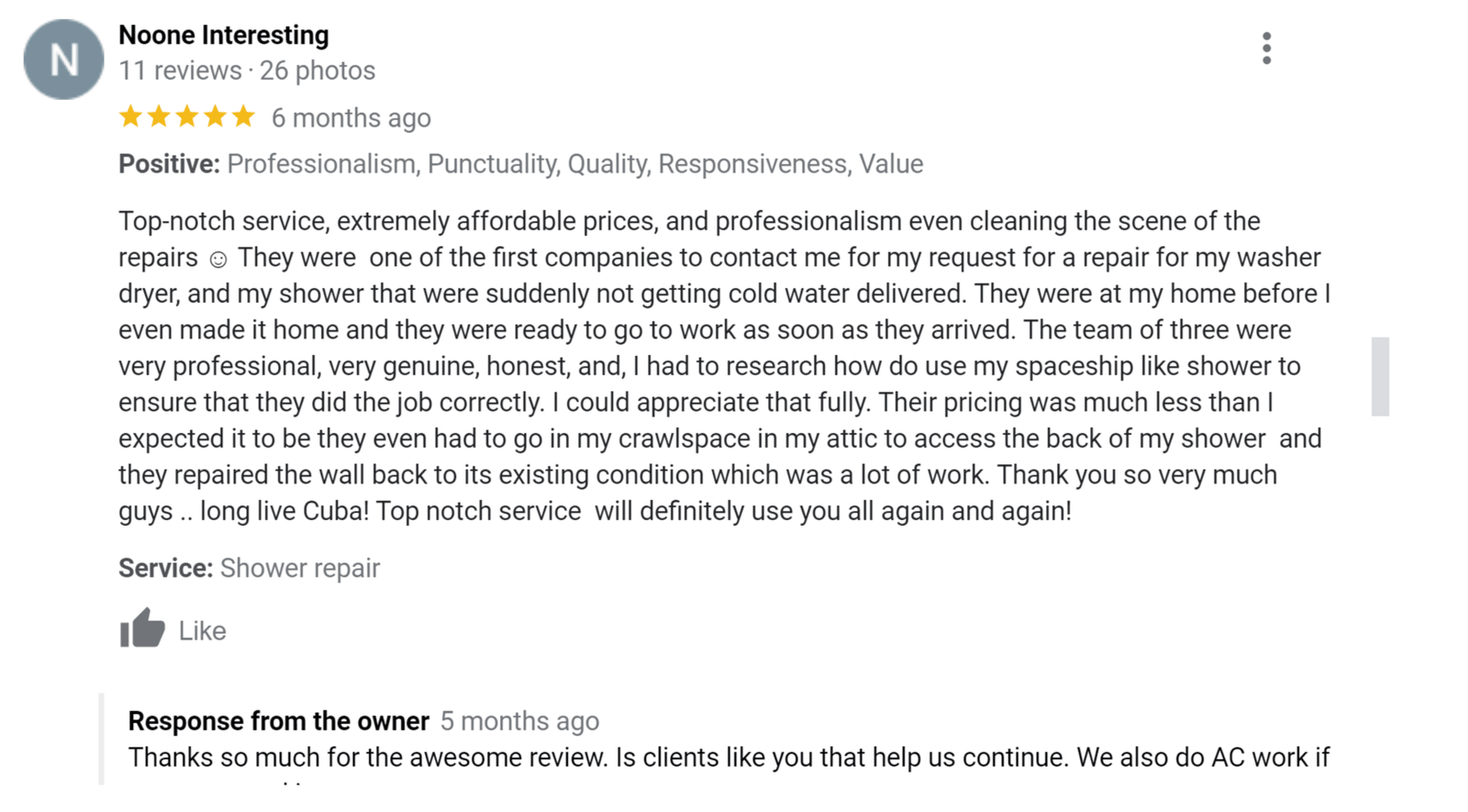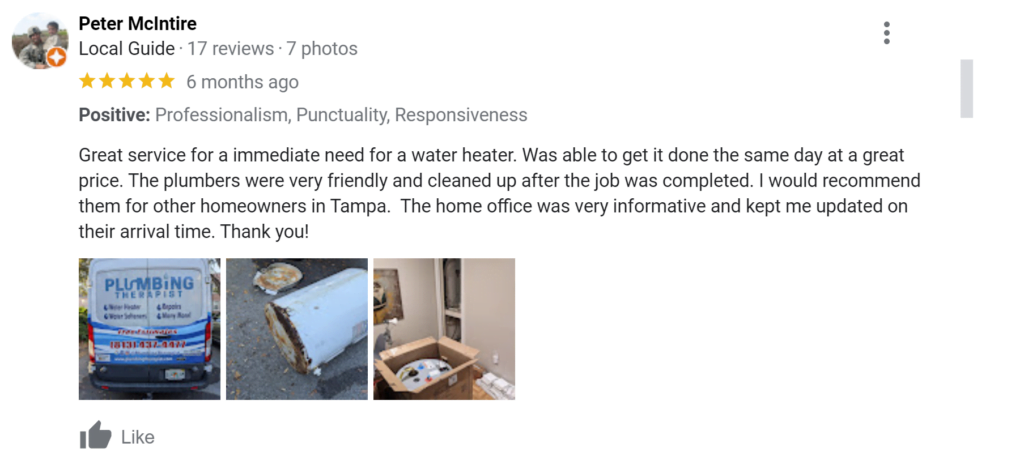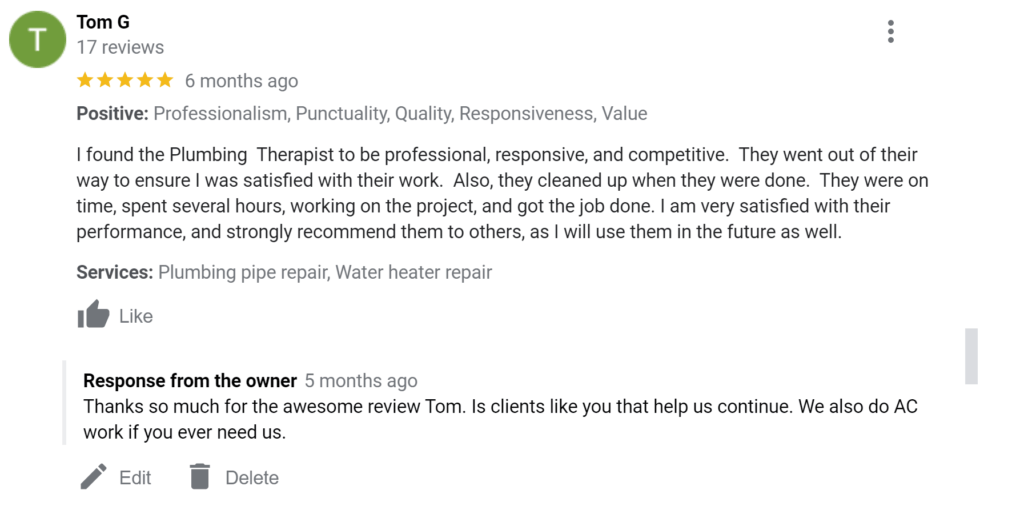Toilet Unclogging
Toilet unclogging is the removal of blockages in a toilet’s plumbing, ensuring proper flushing and preventing backups.
Do You Need Our Help ?
Feel free to contact us now
$99 Water Heater Flush + Free Plumbing System Inspection
Toilet Unclogging in Tampa Bay
Fast and Effective Toilet Unclogging Services in Hillsborough County, Pinellas County, and Pasco County
At Plumbing Therapist, we understand that a clogged toilet can quickly become a plumbing emergency. That’s why we offer expert toilet unclogging services in Tampa Bay and the surrounding areas. Our team of experienced plumbers is here to provide fast, efficient, and affordable solutions to get your toilet back in working order.
Why Choose Plumbing Therapist for Toilet Unclogging:
Experienced Plumbers: Our team consists of highly trained and experienced plumbers who have encountered and resolved a wide range of toilet clogging issues.
Prompt Response: We offer emergency services, so when you’re faced with a clogged toilet, you can count on us to respond quickly to your call.
State-of-the-Art Equipment: We utilize the latest plumbing technology and tools to efficiently diagnose and resolve toilet clogs, ensuring minimal disruption to your daily routine.
Affordable Pricing: We believe in fair and transparent pricing. You’ll receive a clear estimate before we begin any work, and there are no hidden fees.
If you’re dealing with a clogged toilet or need expert plumbing assistance, don’t hesitate to reach out to Plumbing Therapist. We’re your trusted local plumbing company in Tampa Bay, dedicated to providing top-notch toilet unclogging services.

Why partner with Plumbing Therapist?
Quality, Affordability, and Expertise.

No Hidden or Unexpected Charges

Free Estimates & Online Booking Available

Professionally Trained Technicians

Honesty is Guaranteed

Quick Communication & Service Within 24 Hours

400+ 5 Star Reviews

Is it Safe to Have a Clogged Toilet at Home?
Having a clogged toilet at home isn’t just an inconvenience; it can lead to discomfort and potential health risks. Here’s why:
1. Unpleasant Odors: A clogged toilet can cause sewage backup, resulting in foul odors that permeate your living space. These odors can be both uncomfortable and unhealthy to breathe.
2. Risk of Water Damage: If the clog causes an overflow, it can lead to water damage in your bathroom and adjacent areas. This not only harms your property but can also create a hazardous, slippery environment.
3. Inconvenience: A clogged toilet disrupts your daily routine. It can make it challenging to use the restroom when you need to, causing discomfort and frustration.
4. Health Concerns: Clogged toilets can promote the growth of harmful bacteria and pathogens. These can pose health risks to you and your family, potentially leading to illnesses.
5. Potential Plumbing Damage: Clogs can put added pressure on your plumbing system. Over time, this can lead to more significant and costly plumbing issues if left unresolved.
6. Stress and Anxiety: Dealing with a clogged toilet can be stressful, especially if you’re uncertain about how to fix it. This added stress can affect your overall well-being.
7. Wasted Water: Continuously flushing a clogged toilet in an attempt to clear it can lead to excessive water wastage, which is both environmentally unfriendly and costly.
Our Solution: Toilet Unclogging Services
At Plumbing Solutions, we understand the discomfort and health risks associated with a clogged toilet. That’s why we offer expert Toilet Unclogging services. Our skilled plumbers ensure that your toilet functions properly, eliminating unpleasant odors, reducing the risk of water damage, and maintaining a healthy and convenient living environment. Don’t compromise on your comfort and safety – contact us today for swift and effective toilet unclogging services. Your well-being is our priority!
If you would like more information, feel free to give them a call at (813)-437-4477 or you can book online and get their latest discount!
Customer Testimonials: Real Experiences with Plumbing Therapist
We proudly share the experiences and stories of our valued clients. Their feedback provides a glimpse into the quality of service and commitment to excellence we uphold at Plumbing Therapist. You'll read firsthand how our plumbing solutions have improved comfort and efficiency in homes across Tampa Bay. These testimonials illustrate our dedication to customer satisfaction and the difference our expert services can make.




Your questions answered
Common Toilet Unclogging Questions:
What Causes Toilet Clogs?
Toilet clogs can be caused by various factors, including:
Excessive Toilet Paper: Using too much toilet paper in a single flush can overwhelm the plumbing, leading to a clog.
Flushing Non-Flushable Items: Flushing items like paper towels, sanitary products, baby wipes, or foreign objects can easily clog the toilet because they don’t break down like toilet paper.
Hard Water Deposits: Over time, minerals from hard water can accumulate in pipes, narrowing them and making it easier for debris to get stuck.
Tree Root Intrusion: Tree roots can infiltrate sewer lines, causing blockages in the toilet and other plumbing fixtures.
Old or Faulty Plumbing: Older plumbing systems may have corroded or narrow pipes that are more prone to clogs. Even in newer homes, plumbing issues can occur due to wear and tear.
Sewer Line Problems: Clogs or damage in the main sewer line can affect multiple fixtures in the home, including toilets.
Low-Flow Toilets: Some low-flow toilets may not provide enough force to push waste through the drain effectively, increasing the likelihood of clogs.
Understanding these common causes can help homeowners take preventive measures and maintain their toilets and plumbing systems in good working condition.
How Can I Prevent Toilet Clogs?
You can prevent toilet clogs by following these preventive measures:
Use Toilet Paper Sparingly: Avoid using excessive amounts of toilet paper in a single flush. Use only what is necessary to avoid overloading the plumbing.
Don’t Flush Non-Flushable Items: Never flush items like paper towels, sanitary products, baby wipes, or foreign objects down the toilet. These items can easily lead to clogs.
Educate Family Members: Ensure everyone in your household understands what can and cannot be flushed down the toilet. Educate children about proper toilet use.
Install a Trash Bin: Place a small trash bin in the bathroom to encourage the disposal of non-flushable items in the bin rather than the toilet.
Use High-Quality Toilet Paper: Choose toilet paper that is designed to break down easily in water to reduce the risk of clogs.
Regular Maintenance: Consider scheduling regular plumbing maintenance to check for potential issues and prevent clogs before they occur.
Install a Toilet Screen: Installing a toilet screen or guard can help prevent larger items from accidentally falling into the toilet bowl.
Consider a Toilet Auger: Keep a toilet auger on hand to address minor clogs quickly before they become major problems.
Upgrade to a Low-Flow Toilet: Low-flow toilets use less water but are designed to maintain effective flushing power, reducing the likelihood of clogs.
Avoid Chemical Cleaners: Be cautious with chemical drain cleaners, as they can damage pipes and may not effectively clear clogs. Opt for non-chemical methods like plunging or snaking.
By following these preventive measures, you can significantly reduce the risk of toilet clogs in your home, leading to a smoother and more hassle-free plumbing experience.
How Do I Know if the Clog Is in the Toilet or Sewer Line?
Distinguishing between a clog in the toilet and one in the sewer line is important to determine the appropriate course of action. Here’s how you can differentiate between the two:
Toilet Clog:
- When you flush the toilet, water and waste do not go down or drain slowly.
- Water levels in the toilet bowl rise higher than normal.
- The clog is localized to the toilet, and other fixtures in the house (sinks, showers) are functioning correctly.
- If you can see the clog, it’s likely within the toilet trap or drainpipe.
Sewer Line Clog:
- Multiple fixtures in your home are affected, including toilets, sinks, and showers. When you flush one toilet, water may back up in another or come up in the shower or sink.
- Water from one fixture affects others. For example, flushing the toilet causes water to rise in the bathtub drain.
- You may notice gurgling or bubbling sounds in drains when water is used elsewhere in the house.
- Water may be slow to drain from multiple fixtures, and you might notice sewage odors coming from various drains.
If you suspect a sewer line clog or if multiple fixtures are affected, it’s essential to contact a professional plumber. Sewer line issues can be more complex and require specialized equipment to diagnose and resolve. A plumber can perform a camera inspection of the sewer line to pinpoint the location and nature of the clog, allowing for appropriate repairs.
What Are the Signs of a Serious Plumbing Issue?
Serious plumbing issues related to toilet clogging can manifest in various ways. Here are signs that indicate you might be dealing with a significant plumbing problem:
Frequent Toilet Clogs: If your toilet clogs frequently despite proper usage and preventive measures, it could be a sign of an underlying plumbing issue.
Multiple Fixture Problems: When clogs affect multiple fixtures in your home, such as sinks, showers, and toilets, it suggests a potential sewer line blockage or backup.
Sewage Odors: Persistent sewage odors emanating from drains or toilets can indicate a problem with the sewer line or venting system.
Slow Drainage: Slow drainage in multiple fixtures can point to blockages or issues further down the plumbing system.
Backups and Overflows: Frequent toilet backups, overflows, or water coming up in other fixtures when you flush are red flags for a serious plumbing problem.
Unusual Sounds: Gurgling or bubbling sounds in drains, especially when using other fixtures, can signal issues with the sewer line.
Water Damage: If you notice water stains, mold, or other signs of water damage near plumbing fixtures or in the walls or ceilings, it could be due to repeated plumbing issues.
Foundation Cracks: In extreme cases, plumbing problems can lead to foundation issues, including cracks or shifts in the foundation due to water leaks.
High Water Bills: A sudden increase in your water bill without an obvious explanation could indicate a hidden plumbing leak.
If you observe any of these signs, it’s crucial to address the issue promptly. Ignoring serious plumbing problems can lead to more extensive damage and costly repairs. Contact a professional plumber to diagnose the problem and implement the necessary repairs or upgrades to your plumbing system. Early intervention can help prevent further damage and ensure the safety and functionality of your plumbing.
Are Chemical Drain Cleaners Safe and Effective for Unclogging Toilets?
Chemical drain cleaners can be effective in unclogging toilets, but their safety and effectiveness depend on several factors:
Effectiveness:
- Chemical drain cleaners often contain strong acids or bases that can dissolve or break down organic matter causing clogs.
- They can be useful for minor clogs caused by paper or organic material.
Safety Considerations:
- Chemical drain cleaners can be harmful if not used correctly. They are corrosive and can cause skin and eye irritation or even more severe injuries if mishandled.
- Inhalation of fumes from these chemicals can be harmful, so proper ventilation is essential when using them.
- Chemical drain cleaners can damage older or delicate plumbing systems, particularly if they have been used repeatedly.
Environmental Impact:
- Many chemical drain cleaners are not environmentally friendly, and their disposal can contribute to pollution.
Precautions:
- If you decide to use a chemical drain cleaner, follow the manufacturer’s instructions carefully, wear protective gear (gloves and eye protection), and keep the area well-ventilated.
- Never mix different types of drain cleaners, as this can produce dangerous chemical reactions.
Alternative Methods:
- For safety and environmental reasons, many homeowners prefer alternative methods for toilet unclogging. These include using a plunger, a toilet auger, or natural remedies like a mixture of baking soda and vinegar.
In summary, while chemical drain cleaners can be effective for toilet unclogging, they should be used with caution and as a last resort. If you’re not comfortable using these chemicals or if the clog is severe, it’s often safer to consult a professional plumber who can address the issue without the potential risks associated with chemical drain cleaners.
How Much Does Professional Toilet Unclogging Cost?
The cost of professional toilet unclogging can vary depending on several factors, including the severity of the clog, your location, and the plumbing company you hire. Here are some cost considerations:
Severity of the Clog: Minor clogs that can be easily resolved with a plunger or a simple drain snake may cost less than more complex clogs that require professional intervention.
Emergency Service: If you require immediate assistance, such as on weekends, holidays, or after hours, you may incur additional charges for emergency service.
Location: The cost of plumbing services can vary significantly based on your geographical location and local labor rates.
Type of Service: The specific service required to unclog the toilet can affect the cost. For example, using a drain snake may be less expensive than hydro jetting or camera inspections to diagnose deeper plumbing issues.
Additional Repairs: If the plumber identifies underlying plumbing problems beyond the clog, you may incur additional costs for repairs or pipe replacement.
Plumbing Company: Different plumbing companies may have varying pricing structures, so it’s a good idea to obtain multiple quotes for comparison.
When Should I Attempt DIY Toilet Unclogging, and When Should I Call a Professional Plumber?
Deciding whether to attempt DIY toilet unclogging or call a professional plumber depends on the severity of the clog and your comfort level with handling plumbing issues. Here are some guidelines to help you make the decision:
DIY Toilet Unclogging:
Minor Clogs: If the clog is relatively minor and you have experience using a plunger or a toilet auger, you can attempt to clear the blockage yourself.
Familiarity: If you are comfortable and familiar with basic plumbing tools and techniques, you may feel confident in attempting DIY unclogging for minor issues.
Common Clogs: For clogs caused by excess toilet paper or soft obstructions, DIY methods are often effective.
Calling a Professional Plumber:
Persistent Clogs: If you’ve tried DIY methods without success, or if the toilet frequently clogs, it’s best to call a professional plumber. Frequent clogs may indicate an underlying plumbing issue.
Multiple Fixture Issues: If you notice that multiple plumbing fixtures in your home (toilets, sinks, showers) are experiencing drainage problems simultaneously, it could signal a larger issue within the sewer line. In such cases, a professional plumber is essential.
Strange Noises or Odors: Unusual gurgling sounds, foul odors, or bubbling in drains can indicate a more significant plumbing problem beyond a simple toilet clog.
Limited Plumbing Knowledge: If you lack experience in plumbing or feel uncomfortable attempting DIY unclogging, it’s safer to call a professional plumber to avoid potential damage or worsening the problem.
Emergency Situations: If the toilet is overflowing, causing significant water damage, or if the clog poses health risks (such as sewage backup), consider it an emergency and call a plumber immediately.
In summary, for minor and familiar clogs, DIY methods are suitable. However, if you encounter persistent or complex clogs, multiple fixture issues, or suspect larger plumbing problems, it’s advisable to contact a professional plumber. Their expertise and tools can help diagnose and resolve the issue effectively while preventing further damage to your plumbing system.
